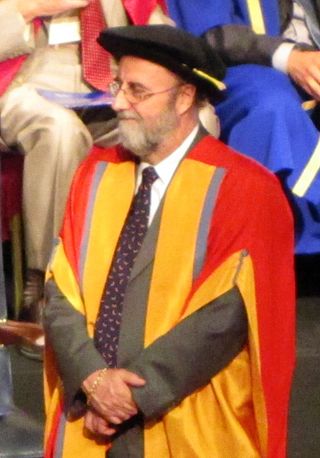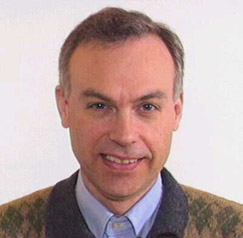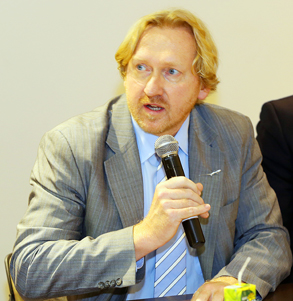Related Research Articles

The Montreal Protocol on Substances That Deplete the Ozone Layer is an international treaty designed to protect the ozone layer by phasing out the production of numerous substances that are responsible for ozone depletion. It was agreed on 16 September 1987, and entered into force on 1 January 1989. Since then, it has undergone nine revisions, in 1990 (London), 1991 (Nairobi), 1992 (Copenhagen), 1993 (Bangkok), 1995 (Vienna), 1997 (Montreal), 1999 (Beijing) and 2016 (Kigali). As a result of the international agreement, the ozone hole in Antarctica is slowly recovering. Climate projections indicate that the ozone layer will return to 1980 levels between 2040 and 2066. Due to its widespread adoption and implementation, it has been hailed as an example of successful international co-operation. Former UN Secretary-General Kofi Annan stated that "perhaps the single most successful international agreement to date has been the Montreal Protocol". In comparison, effective burden-sharing and solution proposals mitigating regional conflicts of interest have been among the success factors for the ozone depletion challenge, where global regulation based on the Kyoto Protocol has failed to do so. In this case of the ozone depletion challenge, there was global regulation already being installed before a scientific consensus was established. Also, overall public opinion was convinced of possible imminent risks.

The United Nations Environment Programme (UNEP) is responsible for coordinating responses to environmental issues within the United Nations system. It was established by Maurice Strong, its first director, after the United Nations Conference on the Human Environment in Stockholm in June 1972. Its mandate is to provide leadership, deliver science and develop solutions on a wide range of issues, including climate change, the management of marine and terrestrial ecosystems, and green economic development. The organization also develops international environmental agreements; publishes and promotes environmental science and helps national governments achieve environmental targets.

Sir Robert Tony Watson CMG FRS is a British chemist who has worked on atmospheric science issues including ozone depletion, global warming and paleoclimatology since the 1980s. Most recently, he is lead author of the February 2021 U.N. report Making Peace with Nature.

The International Union for Conservation of Nature (IUCN) is an international organization working in the field of nature conservation and sustainable use of natural resources. Founded in 1948, IUCN has become the global authority on the status of the natural world and the measures needed to safeguard it. It is involved in data gathering and analysis, research, field projects, advocacy, and education. IUCN's mission is to "influence, encourage and assist societies throughout the world to conserve nature and to ensure that any use of natural resources is equitable and ecologically sustainable".
Diversitas was an international research programme aiming at integrating biodiversity science for human well-being. In December 2014 its work was transferred to the programme called Future Earth, which was sponsored by the Science and Technology Alliance for Global Sustainability, comprising the International Council for Science (ICSU), the International Social Science Council (ISSC), the Belmont Forum of funding agencies, the United Nations Educational, Scientific, and Cultural Organization (UNESCO), the United Nations Environment Programme (UNEP), the United Nations University (UNU) and the World Meteorological Organization (WMO).

Environmental education (EE) refers to organized efforts to teach how natural environments function, and particularly, how human beings can manage behavior and ecosystems to live sustainably. It is a multi-disciplinary field integrating disciplines such as biology, chemistry, physics, ecology, earth science, atmospheric science, mathematics, and geography.
GRID-Arendal is a United Nations Environment Programme partner, located in Arendal, Norway. The Norwegian government created AGRID-Arendal 35 years ago.

The United Nations Environment Programme (UNEP) established Champions of the Earth in 2005 as an annual awards programme to recognize outstanding environmental leaders from the public and private sectors, and from civil society.
The United Nations Conference on the Human Environment was held in Stockholm, Sweden, during June 5–16, 1972.
Digital Earth is the name given to a concept by former US vice president Al Gore in 1998, describing a virtual representation of the Earth that is georeferenced and connected to the world's digital knowledge archives.
Proposals for the creation of a United Nations Environmental Organization (UNEO) have come as some question the efficacy of the current United Nations Environment Programme (UNEP) at dealing with the scope of global environmental issues. Created to act as an anchor institution in the system of Global Environmental Governance (GEG), it has failed to meet those demands. The UNEP has been hindered by its title as a Programme as opposed to a specialized agency like the United Nations Educational, Scientific and Cultural Organization (UNESCO) or the World Health Organization (WHO), in addition to a lack of voluntary funding, and a location removed from the centers of political power, in Nairobi, Kenya. These factors have led to widespread calls for UNEP reform, and following the publication of Fourth Assessment Report of the IPCC in February 2007, a "Paris Call for Action" read out by French President Chirac and supported by 46 countries, called for the UNEP to be replaced by a new and more powerful United Nations Environment Organization, to be modelled on the World Health Organization. The 52 countries included the European Union nations, but notably did not include the United States and BRIC, the top five emitters of greenhouse gases.
Pier Vellinga is an environmental scientist and one of the Netherlands' experts on the impacts of climate change.

Jacqueline Myriam McGlade is a British-born Canadian marine biologist and environmental informatics professor. Her research concerns the spatial and nonlinear dynamics of ecosystems, climate change and scenario development. She is currently professor of resilience and sustainable development at the University College London Institute for Global Prosperity and Faculty of Engineering, UK, and professor at Strathmore University in the Institute for Public Policy and Governance, Kenya.
The European Association of Science Editors is a non-profit membership organisation for people interested in science communication and editing. Founded in 1982, in France, EASE has an international membership.

Jon Samseth, born July 23, 1954, in Trondheim, Norway, is a Norwegian engineer and professor of physics. He was awarded an engineering degree in physics (siv.ing.) from the Norwegian Institute of Technology (NTH) in 1981. He later earned a Diplôme d'ingénieur degree in Petroleum economics from the École Nationale Supérieure du Pétrole et des Moteurs (ENSPM) in France in 1983. He received his PhD in physics from the Massachusetts Institute of Technology (MIT) in 1988. Samseth is a professor of energy physics at the Oslo Metropolitan University as well as a scientific advisor to SINTEF industry. In addition, he served as an adjunct professor in the Department of Chemical engineering at NTNU from 2007 to 2015.

The Environmental Protection Agency, is an agency of Ministry of Environment, Science, Technology and Innovation, established by EPA Act 490 (1994). The agency is dedicated to improving, conserving and promoting the country’s environment and striving for environmentally sustainable development with sound, efficient resource management, taking into account social and equity issues. It oversees the implementation of the National Environment Policy. EPA Ghana's mission is to manage, protect and enhance the country’s environment and seek common solutions to global environmental problems. Its mission is to be achieved through an integrated environmental planning and management system with broad public participation, efficient implementation of appropriate programs and technical services, advice on environmental problems and effective, consistent enforcement of environmental law and regulations. EPA Ghana is a regulatory body and a catalyst for change to sound environmental stewardship.
The International Union of Air Pollution Prevention and Environmental Protection Associations (IUAPPA) is an international federation of civil society organisations concerned with air pollution. IUAPPA, founded 1964 at the urging of the US Air Pollution Control Association, has 40 national organisations from countries such as the United States, Germany and Japan and has networks and representatives in most others countries. The Foundation is seen as one milestone in the "Ecological Revolution" in and around 1970.

Bradnee Chambers was an expert on international environmental governance, law and politics. In March 2013 he was appointed as the Executive Secretary of the Convention on the Conservation of Migratory Species of Wild Animals (CMS), a main United Nations multilateral conservation treaty He was also the acting Executive Secretary of the Gorilla Agreement and the Agreement on the Conservation of Small Cetaceans in the Baltic, North East Atlantic, Irish and North Seas (ASCOBANS) both administered under the UN Environment Programme. These agreements form the global framework for conservation of wild animals migrating between countries. The agreements cover an immense scope of wildlife including whales, dolphins, sharks, elephants, big cats, bats, monarch butterflies, saiga antelope, waterbirds, and migratory fish.
Boshra Salem is a professor, founder and the Chair of the Department of Environmental Sciences at Alexandria University in Alexandria, Egypt. She is president of Unesco's Man and the Biosphere (MAB) International Coordinating Council (ICC) and serves on the International Council for Science (ICSU)'s Committee for Scientific Planning & Review. She has received a number of awards, including being recognized as an outstanding female scientist in the Women in Science Hall of Fame by the Embassy of the United States in Cairo, Egypt.

Joyeeta Gupta is a Dutch environmental scientist who is professor of Environment and Development in the Global South at the University of Amsterdam, professor of Law and Policy in Water Resources and Environment at IHE Delft Institute for Water Education, and co-chair of the Earth Commission, set up by Future Earth and supported by the Global Challenges Foundation. She was co-chair of UNEP’s Global Environment Outlook-6 (2016-2019), published by Cambridge University Press, which was presented to governments participating in the United Nations Environment Assembly in 2019. She is a member of the Amsterdam Global Change Institute. She was awarded the Association of American Publishers PROSE award for Environmental Science and the 2023 Spinoza Prize.
References
- ↑ "History". SCOPE. Archived from the original on 2014-03-17. Retrieved 2014-03-16.
- ↑ "SCOPE Members". SCOPE. Archived from the original on 2014-03-17. Retrieved 2008-07-23.
- ↑ "Mission". SCOPE. Archived from the original on 2014-03-17. Retrieved 2016-10-09.
- ↑ "Environmental Development". Elsevier. Retrieved 2016-10-09.
- ↑ "About UNEP Year Book Report". UNEP. Archived from the original on 2016-10-10. Retrieved 2016-10-09.
- ↑ "UNESCO-SCOPE Policy Briefs Series". Scope. Archived from the original on 2016-03-04. Retrieved 2016-10-09.